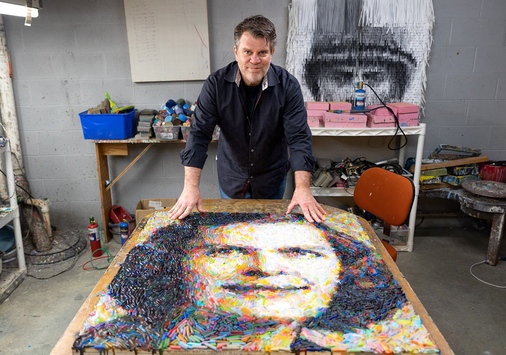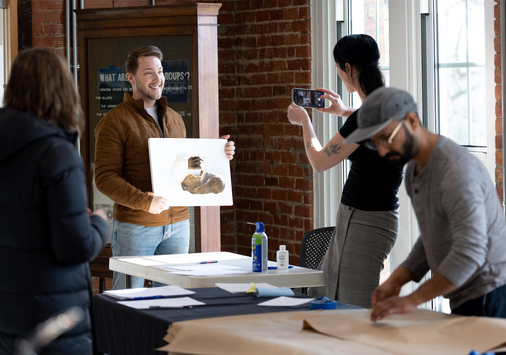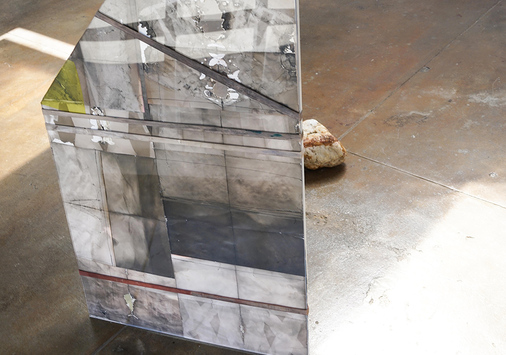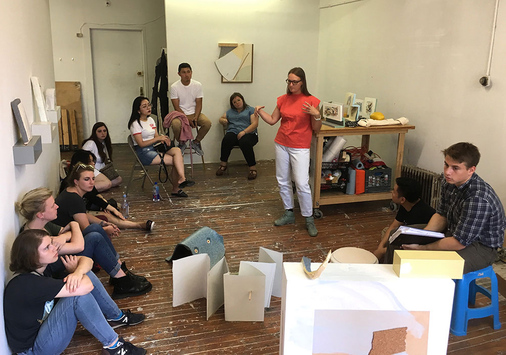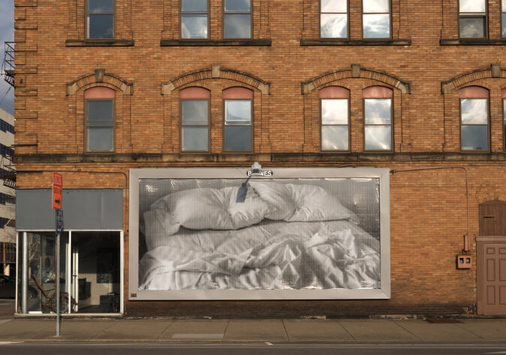
Associate Professor of Studio Art Sheilah ReStack has just opened Cuts in the Day at the Camden Art Center in London. The multimedia exhibition includes a collection of solo and collaborative works by ReStack and her partner Dani ReStack, associate professor of art at The Ohio State University.
How do you come up with your ideas?
The questions I explore often have to do with what I am dealing with in my life. That is ample material for investigation, translation, and query. And life can mean me and my family, my home, but also life in context, with community, etc.
Home can be much larger than a prescribed social environment. It can include many different worlds and ways of being in the world, and things like the climate crisis, the world of being a mother — there are endless possibilities.
You and your partner Dani have frequently collaborated on work. Can you contrast what it’s like to work in partnership with someone to working alone?
Making work with Dani has been wonderful because I feel I have a community and partner who creates accountability for making the art. We show up for one another, and we show up to make sure the work is moving forward. It is also a place for us to be connected outside our domestic and everyday life madness.
My solo work is marking the relation of myself with children, as mother, and with the interior and exterior world. I’m having a conversation about photography and how it can live in the world -— what an image can be in the world. I believe it can be more than simply an image, we can also see it as a sculpture, as a two-sided material, for example.
For this exhibition, you created a collaborative work in response to artist Forrest Bess, who died in 1977. Can you tell us more about that?
The collaborative piece is called Blood and Water for FCB. We found a connection with Bess and his search for transcendence of body. He lived on a small spit of land surrounded by water, so we searched for sources of water to submerge objects and filmed the process. We used domestic utilitarian objects, pots, and pans to indicate transformation is possible even in most domestic banal objects.
ReStack has held exhibitions in galleries and museums across the world, including Nova Scotia, Switzerland, Germany, and New Zealand.




